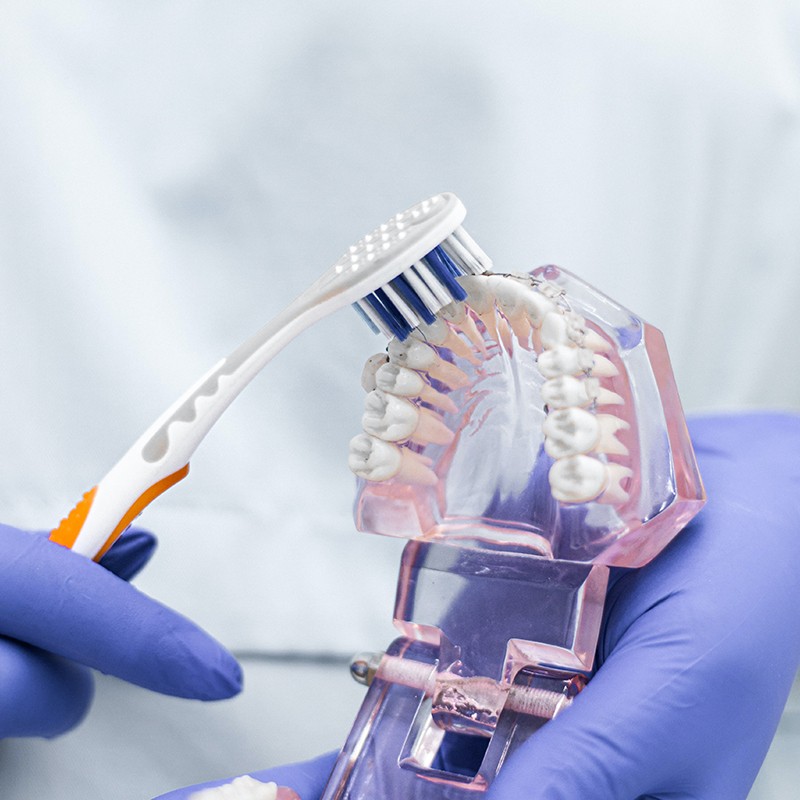Make Dental Work Easier
Bring the best Chinese digital dentistry solution to Africa.
The biggest misconception many people have about taking care of their teeth is that they don't know enough about periodontal disease, or even just ignore it. The occasional toothache or bleeding is not a problem, it's just "fire". As long as there is no caries, then my teeth are healthy. But unfortunately, this is really a disease that needs to be treated.
So what are the common misconceptions about taking care of your teeth?
Not taking toothache, bleeding teeth, swollen and painful gums seriously and refusing to see a doctor
Headache and fever will go to the doctor, but toothache is definitely not taken seriously. In fact, the problem of bleeding gums should not be underestimated, it is one of the early symptoms of periodontal disease, it is likely to be periodontitis.
Over time, it will cause gum recession, which is the cause of the "black triangle", the most fundamental reason for loose teeth! And gum recession is irreversible!
If you have oral problems, it is recommended that you see a doctor as soon as possible for periodontal treatment, scaling or subgingival scraping. Those who think they have pretty good teeth are also advised to go to the dentist regularly for annual cleanings and visits.
Scaling, the teeth will be loose, the gap between the teeth to become larger
The purpose of scaling is to remove deposits of calculus, which cannot be removed by daily brushing and flossing.
Looseness and gaps in the teeth occur because scaling removes the calculus that adheres to the surface of the teeth. And people with unhealthy periodontals and receding gums turn out to have a cover of calculus that looks less obvious.
But this calculus can do your periodontium more harm than good, and it can cause your gums to recede and make it difficult to return to a healthy periodontium.
I think it's essential to get your teeth cleaned every six months or a year, and by the way, you can get your teeth checked too.
Sooner or later, kids need to change their teeth, and it's okay if they get cavities
Many children cry when they brush their teeth, and parents feel sorry for them, so they don't let them brush their teeth, and they don't take it seriously because they think they need to change their teeth anyway.
First of all, not to mention the bad teeth on the degree of food chewing reduced, will affect the absorption of food, gastrointestinal no good. In addition, periodontal unhealthy will affect the alveolar bone resorption, your "soil" are out of order, do you think that the "crops" growing on it will not be affected?
Bad teeth are genetically related, no matter how much care you take, it won't help!
I often hear people complain that my bad teeth are hereditary, both my parents have bad teeth.
It is undeniable that genes have some influence on teeth. For example, congenital enamel hypoplasia and congenital tooth loss are typical hereditary diseases. However, it has far less of an impact on most people and should not be used as an excuse not to focus on oral health. If it really is only genetically related, then why do some teeth break and others are fine?
Brushing hard and not long enough
Incorrect, hard brushing can seriously affect your teeth. The most common is grinding a row of grooves into the roots of your teeth. Be sure to follow the pasteurised brushing method to the letter and brush for a full 2 minutes or more, don't settle for three strokes.
Orthodontics can loosen your teeth
Gum recession is the most fundamental cause of loose teeth. And teeth that are not straight are naturally prone to cause all kinds of oral problems.
In fact, some so-called "examples" say that teeth become loose after orthodontic treatment. Basically, it is because it is more difficult to clean the teeth during the period of orthodontic treatment, and if you do not pay attention to it, you will be prone to periodontal disease in the long run, resulting in gum recession and alveolar bone resorption.
Plus you meet some unscrupulous doctors who add too much force every time and move your teeth too quickly, which can also cause alveolar bone resorption.
If your teeth are crooked at a large angle, these areas are more likely to have "black triangles".
Adults are not suitable for orthodontic treatment
The prime time for orthodontics is during the early stages of permanent dentition (around 11-14 years old). At this time, the development of the dental arch is basically completed and the dental bed is in a state of vigorous growth.
Orthodontic treatment at this time not only achieves the quickest results, but also improves some minor jaw development problems (e.g., pericoronitis, receding jaws). After adulthood, the only way to go is through osteopathic surgery. But that doesn't mean adults can't have orthodontics!
Alveolar bone is remodelled throughout life, and as long as the periodontium is healthy, there is no age limit for orthodontic treatment. However, it will take longer than if you were a small child.
Overall, the limit for braces is not age, but periodontal health.

Copyright © 2024 Golden Promise Dental Co.,Ltd. | All Rights Reserved
We are here to help you! If you close the chatbox, you will automatically receive a response from us via email. Please be sure to leave your contact details so that we can better assist